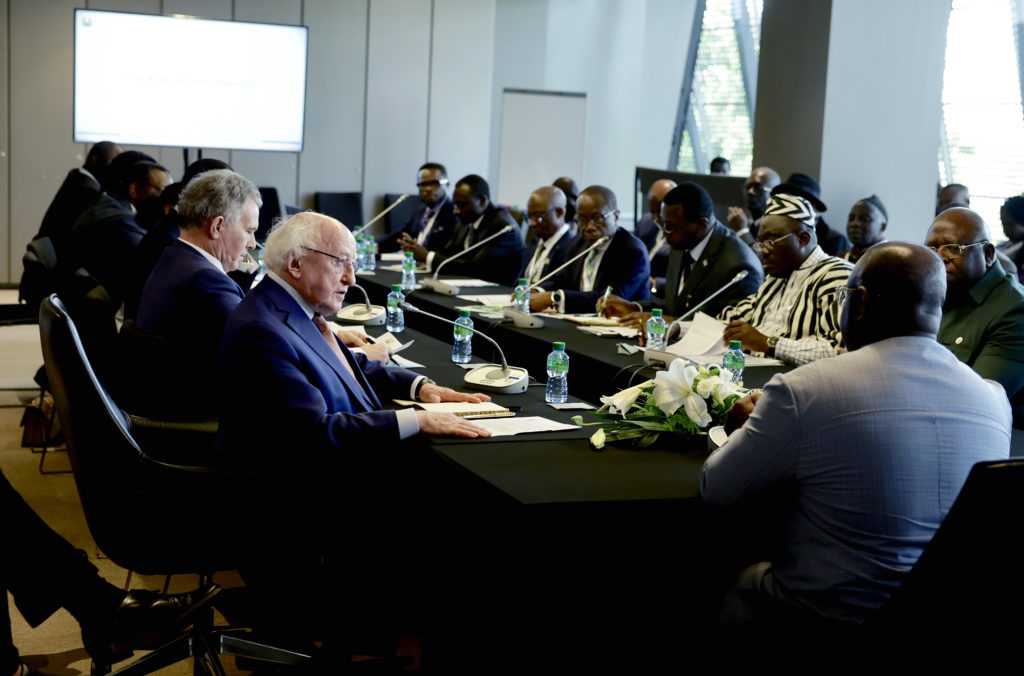PRESIDENT Michael D Higgins concluded his visit to Senegal this week by making a closing speech at the International Conference on Agriculture ‘Feed Africa: Food Sovereignty and Resilience’ in Dakar.
In his talk, the President, who has attended a number of meetings while visiting the country with wife Sabina since Tuesday, January 24, thanked his hosts for inviting him to attend their summit.
“It has been a great privilege to be present at what I believe is a meeting with the capacity to make an enormous response, not just to the needs of Africa, but to the needs of humanity at this time,” he said.
Regarding the topic at the centre of the conference’s discussions this week, he added: “There is no need to report the urgency of the conditions in which we find ourselves in Africa with regard to food security.
“The challenge we face is, above all else, a challenge to humanity itself.”
He explained: “Yes, we are addressing a malfunction in global food security but, far more importantly, we are addressing the future of Africa and its people – 17 per cent of the world's total population and 24 per cent of the world's young people.”
 President Michael D Higgins has attended a number of meetings while in Senegal for the Dakar summit (Pics: Maxwells Photography)
President Michael D Higgins has attended a number of meetings while in Senegal for the Dakar summit (Pics: Maxwells Photography)Offering his own insight into how the issues may be addressed on the global stage, he said: “The steps which we must immediately take are responding to the humanitarian crisis, but above all else must tackle the structural causes of the issues we face.
“We cannot tackle food security on our own, there are a number of things which we must do together - we must address debt restructuring and conditions and get an adequate multilateral response.
“We must address balances between the cultural realities of sustaining family and of participation in economies.
“We must offer not only freedom from hunger, but opportunities in new forms of economy to young people. They are uniquely positioned to offer us a new balance of economics, ecology, society and culture.
President Higgins added: “The challenges ahead are urgent and they can seem increasingly daunting.
“Let us recognise the scale of the agenda we face: addressing hunger and global food insecurity, tackling climate change and biodiversity loss, protecting rural communities, and continuing to build an inclusive, peaceful, resilient and sustainable world – all of this in a world increasingly riven by geo-political tension and dangerous narratives of war and military conflict.
“In these dark moments, let us look to the resources and influence that Africa can harness.
“And let us not just dream but decide to act together to make this century Africa’s Century: a continent with 60 percent of the world’s arable land, which can not only feed its growing population, but become a net exporter of sustainable food to the world.”

